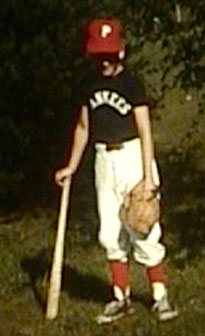I’ve been following a Newsweek blog called “Beijing Beat,” which is focused on the Olympics. The two lead writers are Melinda Liu, an acclaimed American journalist who has specialized on China; and Mark Starr, another excellent writer.
On August 13, a writer named Mary Hennock posted an item about Christian activists called “Protestors Go Underground as Police Clamp Down.” Curiously, the post has been removed from the blog. However, I still had it in my RSS reader. I decided to print it here.
I spent much of Wednesday trying to speak to Hua Huiqi, a Beijing-based Christian activist who has disappeared since being arrested on his way to church on Sunday Aug 10. It was the same church President Bush was planning to attend (to show his support for religious freedom in China), and the police seemed to think that Hua’s presence was a bad idea.
They nabbed Hua and his elder brother Hua Huilin as they cycled towards the church around 6:00 A.M. and took them to a police post. Hua skipped custody sometime around midday, when he noticed his captors had dozed off, according to the letter he sent to Human Rights in China on Monday.
So as not to keep in you in suspense, let me tell you now that I didn’t track down Hua, and I can well understand why he might want to stay low. The phone was cut three times during our conversation with the pastor’s elder brother Hua Huilin, often an indication that the line is being monitored. Hua Huilin is also now on the run, afraid to go home because “there’s a lot of police in front of my house.” Although he’s not a Christian, he accompanied his brother to Kuanjie Protestant church because he couldn’t dissuade him and wanted to protect him. Before the two were put in separate rooms at the police post, he heard the police threaten to break Pastor Hua’s legs. He doesn’t know where his brother is now, only that he’s safe and is being cared for by fellow-Christians, he says.
Other Christian activists are under de facto house arrest. For instance, novelist Yu Jie told us that police are waiting outside his house and chauffeur him everywhere. “From July 31…I’m not allowed to go by taxi or drive my own car,” he said.
Human Rights Watch estimates about 30 people are under some kind of house arrest in Beijing–Yu Jie reckons about 10 are Christians. Most of them are also involved in other kinds of activism such as defending homeowners facing eviction by developers, say Nicholas Bequelin, a Hong Kong-based Asia researcher with Human Rights Watch. Repression is being driven by “an attempt to put a choke-hold on information” rather than a political clampdown based on fear of any particular groups of dissidents, he says.¬†
Christian lawyer Li Baiguang says small group worship in “house churches” outside the constraints of the officially-registered Three Self Church is still possible, though people knock on the door to complain. “[They] say they’re neighbors but I don’t think they are,” he says. Some of the bigger “house churches” have been closed down, including Pastor Hua’s, but most survive. Li says he is followed when he travels outside Beijing, and his law firm, Beijing City Common Trust, which handles anti-corruption cases, has had two recent visits from local officials querying his business license.
Before the Games began, there was much speculation about dramatic protests for many causes. So far, protests have been small-scale and almost all have been carried out by foreigners. “I think the Chinese government has succeeded very well in silencing not only well-known dissidents and activists but also NGO activists and academics who are outspoken, and lawyers, and basically pretty much everyone in addition to the usual suspects,” says Bequelin.
One sign of China’s effectiveness in stifling any protest movement is the hoopla over a brief kerfuffle outside the Chinese Ethnic Culture Park, just south of the Olympic Green, and the 20-minute detention of a British journalist. John Ray of Independent Television News (ITN) was dragged along the ground, pushed in a van, and emerged with a bruised hand. It’s generated plentiful media coverage, and certainly breaches the Chinese government’s pledge to allow foreign journalists to report freely. The Foreign Correspondents’ Club of China has rightly objected. But the amount of attention to Ray’s case is also a reflection of the fact that here at last was someone‚Äî-a foreign broadcaster‚Äî-willing and able to speak freely about being man-handled by police.
Ray was reporting on a protest by Students For a Free Tibet, who’re proving to be the most active and best-organized opposition here, pulling off a stunt most days, with subsequent deportations. They staged a die-in on Tiananmen Square, and the five people involved were deported; a student displayed the Tibetan Snow Lion flag ringside at the equestrian events in Hong Kong and was carried off, and on Wednesday they scored their highest number of arrests so far‚Äî-eight-‚Äîby the simple tactic of handcuffing themselves together. Small groups of American and Dutch Christians have held protests on Tiananmen Square. The man who claims to have daubed hotel rooms with free speech slogans has announced he is in hiding in Beijing‚Äî-somewhat voluntarily, I feel‚Äî-and will give himself up on Aug 24.
The much-anticipated protest movement hasn’t really materialized, and it doesn’t look likely to. Frustrated foreign journalists on Wednesday were left fencing with International Olympic Committee (IOC) in its daily press conference about whether it has proved a willing dupe on China’s promises to improve human rights. The questions are justified. “This is a very, very large police effort to keep people away [from Beijing] and one that is actually working very well,” says Bequelin.
 So the Yankees pulled it off! My team won!
So the Yankees pulled it off! My team won!






